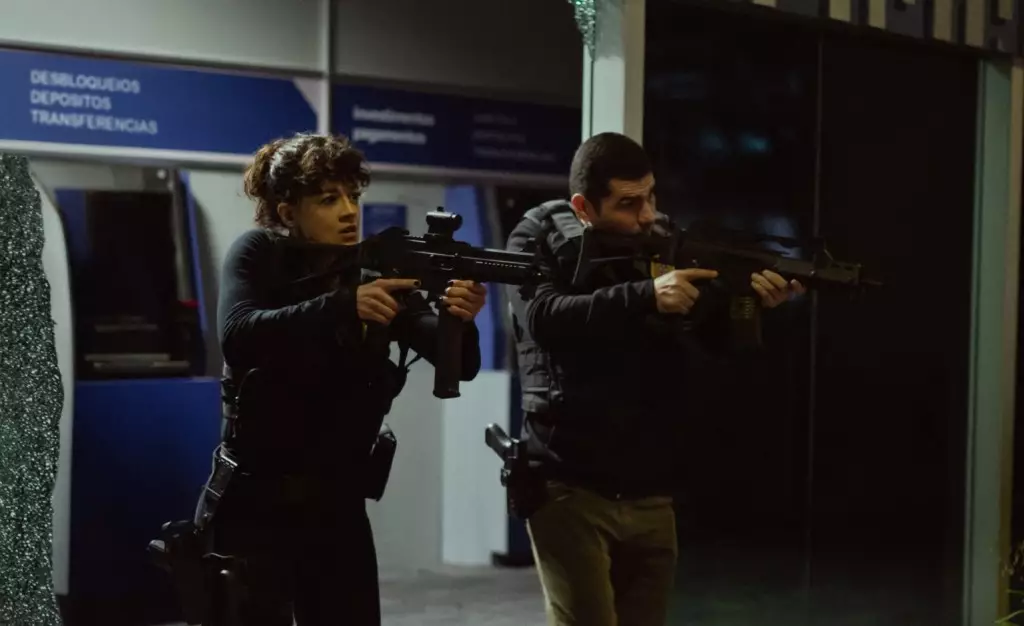Criminal Code is not just another Netflix offering; it represents a seismic shift in the world of Brazilian entertainment, showcasing how the nation can captivate global audiences. Based on real events, the show transports viewers to the complex crime-laden territory around the Triple Frontier, where Brazil, Argentina, and Paraguay converge. This setting is of monumental significance to the narrative, illuminating the underbelly of crime and the moral ambiguity that permeates the lives of its characters. The concept of interwoven storytelling thrives here as the series explores multiple perspectives, each adding layers to the grim yet thrilling plot, ultimately enhancing the viewing experience.
Will it be a game-changer for Brazilian television? Absolutely. The show’s groundbreaking approach, fueled by actual events, resonates with audiences in Brazil and beyond. As indicated by its astounding performance in Netflix’s top 10 lists across 70 countries, including the U.S. and Canada, Criminal Code manages to break geographical barriers while tackling universal themes of loyalty, ambition, and the pitfalls of crime. Heitor Dhalia, the visionary director and showrunner, deserves credit for navigating this nuanced territory, offering a fresh and authentic narrative that reflects the complexity of modern Brazilian society.
The Duality of Crime and Morality
What makes Criminal Code particularly compelling is its commitment to authenticity, grounded in painstaking research and collaboration with experts in the crime landscape. Dhalia’s openness about engaging real-world consultants—including police officers and former criminals—serves to elevate the show’s credibility. This fusion of fact and fiction not only distinguishes Criminal Code from typical crime dramas but also offers viewers a glimpse into the gritty reality of its characters. The stakes are palpable, and the emotional weight they carry resonates, allowing audiences to engage with the narrative on a deeper level.
The thematic exploration of moral dualities is palpable throughout the series. The characters aren’t merely good or bad; instead, they exist in a spectrum of gray, making their choices relatable. This is particularly poignant in a world where crime often feels alluring and heroic, portrayed through charismatic antiheroes who pull at viewers’ sympathies. The series’ depiction of the Phantom Gang’s audacious heists intertwines admiration with dread, leaving the audience wrestling with their own moral compass.
Innovative Storytelling Techniques
In addition to its intricate storytelling, Criminal Code excels in its use of multiple viewpoints. This innovative technique allows for a diversified representation of events, offering different angles that challenge the audience’s perceptions. Dhalia recognizes the strength in this narrative framework, stating that it enriches the series’ authenticity. The casting of several former inmates not only enhances this realism but facilitates an exploration of themes such as redemption, consequence, and the prison system itself. These casting choices serve a dual purpose: they ground the show in reality while also sparking conversations around crime and punishment that echo throughout society.
In Dhalia’s own words, the success of the first season has emboldened the creative team to delve deeper into the complex universe of crime. With the upcoming second season set to explore even more daring escapades—such as an intricate prison break—expectations are high. The notion that the storytelling will become bolder and more expansive is thrilling. The enthusiasm Dhalia expresses for season two suggests a series that is not afraid to take risks or challenge viewers, pushing the boundaries of what audiences may expect from a typical action drama.
A New Era for Brazilian Productions
As Criminal Code ascends to global acclaim, it heralds a new dawn for Brazilian television, one where narratives are bold, intricate, and distinctly unique. Dhalia’s endeavors in the realm of filmmaking, paired with Netflix’s global platform, are paving the way for a diverse spectrum of Brazilian stories to flourish, showcasing the nation’s rich culture and intricate societal issues to an international audience. The upcoming series Os Donos do Jogo, focusing on the gambling mafia of Rio de Janeiro, promises to continue this trend, providing a fresh perspective on the country’s complex socio-economic terrain.
In a world where content is king, Criminal Code exemplifies how meaningful narratives placed within culturally rich contexts can transcend borders. It encapsulates the essence of modern storytelling in an age where authenticity and relatability are key connectors between creators and viewers. This series isn’t merely entertainment; it invites audiences to reflect on their own perceptions of crime, morality, and the intricacies of human ambition. The stakes have never been higher, and the anticipation for what’s to come is palpable. The chapter that Criminal Code is writing in Brazilian television could very well redefine the future of international drama.

